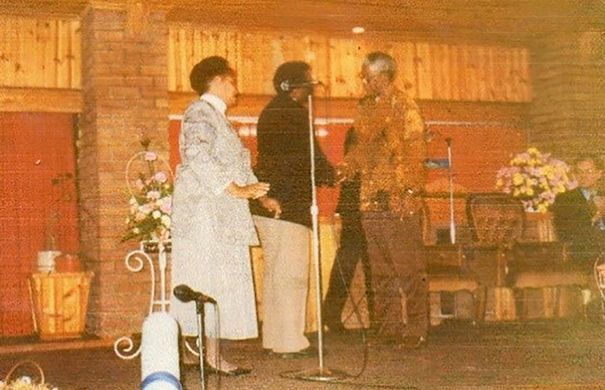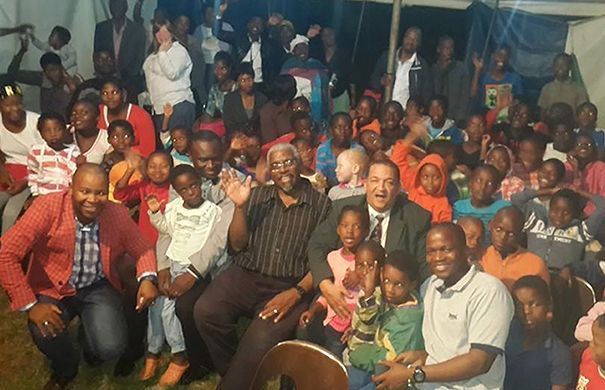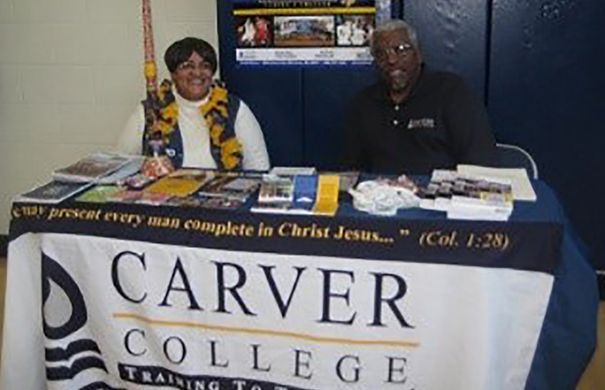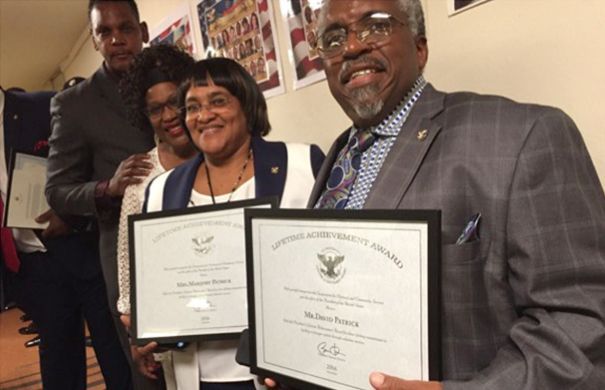As she listened to African-American missionaries from her home church tell their stories in front of the congregation, 14-year-old Marjory heard a voice — small at first, but distinct.
She was completely enthralled with these brave men and women who put their lives on the line for the sake of the Gospel. Could she ever be like them? Then, she heard the voice again. Louder this time, and clearer: “You are looking at your future.”
Several years later, a visiting pastor offered David Patrick a pamphlet called “Hearing the Call of God.” David flipped through it as the author, David Hill, talked with him. Suddenly, he knew.
Immediately, he found his wife and told her the news: God was calling them to serve in South Africa ! As her husband spoke to her, Marjory Patrick instantly remembered herself at 14 and began to cry tears of joy.
Creating Unity in Post-Apartheid South Africa
The Patricks went on to faithfully serve the Lord in South Africa for 22 years. Shortly after arriving on the mission field, they were publically commended by President Nelson Mandela for being some of the few African-American missionaries serving in South Africa. Little did they know that years later, they would also be commended with the highest-ranking civilian award back in their homeland.

David and Marjory shaking hands with Nelson Mandela in 1993 as Mandela recognized their service as full-time African-American missionaries ministering in South Africa. | Photo courtesy of David Patrick
The Patricks firmly believe in the power of diversity when it comes to working together for the kingdom. As TEAM ’s first African-American missionaries, they say serving in post-Apartheid South Africa was a powerful way to thwart the Enemy’s tactic of division within the Body of Christ.
David and Marjory’s overseas ministry was especially impactful because of their natural rapport with the native Africans.
“It helps to validate the Scriptures when they see other people of color on the field as well,” said David.

David (center) with an orphan ministry in South Africa which later became a church plant. | Photo courtesy of David Patrick
One of David and Marjory’s ultimate goals is to encourage more of the African-American community to develop a healthy mindset regarding missions.
“It looks one-sided unfortunately, but that’s just the way things have been. We’re here to make changes in the world, and we’re here to make changes in people’s views or understanding of missions and who is called,” said David. “The thing is, all are called.”
While serving in South Africa, the Patricks taught a variety of courses at Union Bible Institute. David also served as choir director and Marjory served on the school’s management team. They also spearheaded many traveling and open-air evangelism efforts.
New Adventures in Ministry
David and Marjory will be the first to testify that the Lord always prepares you for what He knows you’ll do in the future. Looking back now, they say serving at a Bible institute in South Africa is what equipped them for the work they started doing in the States over a year ago: David serves as Dean of Students, while Marjory serves as Director of Admissions for Carver College in Atlanta, Georgia.
While much of their days involve handling logistics for the college, David and Marjory always find time to minister to coworkers and students.

Although they are now serving in the States, David and Marjory’s passion for empowering students to follow the Lord has not changed — if anything, that passion has grown stronger. | Photo courtesy of David Patrick
They particularly have a heart for marginalized and minority groups, such as students who come from low-income, single-parent homes and international students who now find themselves far from what’s familiar. Just as they loyally served the South African community for 22 years, they now serve the community of Carver College in the name of Jesus.
The One who Honors
The Patricks’ years of service have not gone unnoticed — even by the President of the United States.
In 2016, they were honored with the President’s Lifetime Achievement Volunteer Service Award , which is awarded to individuals who have completed 4,000 or more hours of volunteer service in their lifetime.

Marjory and David received the President’s Lifetime Achievement Volunteer Service Award in 2016, but Marjory said, “God is the One who honors.” | Photo courtesy of David Patrick
“You know, we first want to say God is the One who honors, and He chooses to honor vessels in a variety of ways. We were first commended for being full-time African-American missionaries by President Nelson Mandela, who was the first democratically elected black president,” said Marjory. “Only God would have known that in coming off of the foreign field, we would also be honored by President Barack Obama.”
The Patricks were nominated for this award by both the U.S. Ambassador to South Africa and by a mentoring couple who had encouraged the Patricks when they were first preparing to go into full-time missions.
On November 21, 2016, over 50 recipients, family members, members of the press, military and government officials packed into the church where the receiving ceremony for the President’s Volunteer Service Award was being held.
“The atmosphere of the event was charged,” said David. This would be the final acknowledgment ceremony from the first African-American president of the United States.
It was a fitting scene, as David and Marjory’s life of ministry has always centered on being trailblazers in global missions for the African-American community. They continue to set an example of fearlessness and confidence in the power of the Gospel.
“That’s why we’re glad we’re part of TEAM and glad to use this opportunity to pull other people into ministry,” David said. “The Great Commission did not say for people of a certain color or culture to be a part of missions. It’s something for everyone.”




















